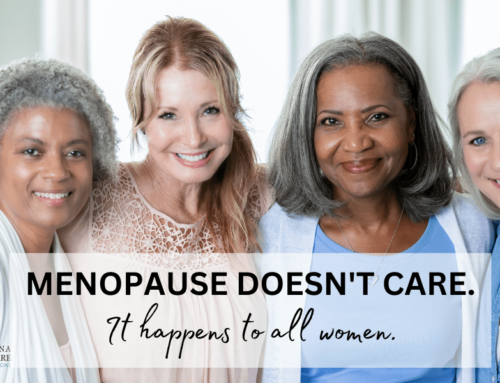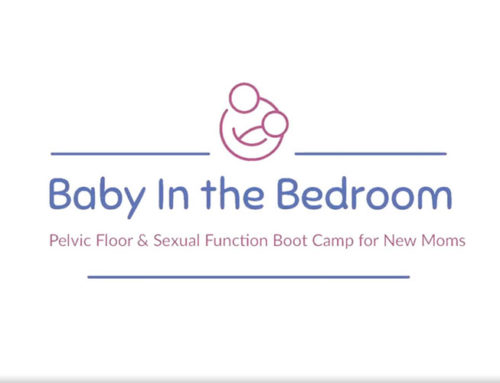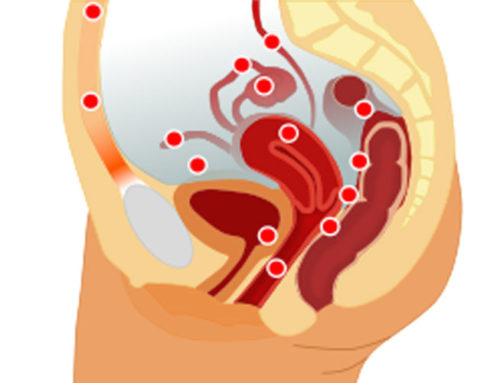Vaginal dryness is a common complaint in women of all ages, but especially in women after the age of menopause. Vaginal dryness affects up to 85% of women over 40 years of age, with an additional 59% reporting painful intercourse and 77% complaining of vaginal itching and irritation. [1] Vaginal dryness can also be problematic for new moms who are breastfeeding, women who have undergone treatment for cancer, and women who have been on birth control pills for a long time or are on anti-hormone medications to treat conditions like endometriosis. Not having enough foreplay or inadequate arousal before intercourse also can be a cause of vaginal dryness with sexual activity.
Vaginal dryness can be bothersome on its own, but often causes sex to be uncomfortable or unbearably painful. Many women wonder what the best product options are to improve vaginal comfort out of a dazzling array of containers on the shelf and products boasted to be the best on the internet.
Up to 70% of women with symptoms of vaginal dryness do not discuss their condition with a health care provider [2], and some believe their symptoms are an inevitable part of the aging process not knowing how many treatment options to cure their complaints exist. [3] The vagina is designed to self lubricate during arousal. After a woman goes through menopause however, either naturally or after surgery that removes her ovaries, estrogen levels decline in vaginal tissues and can cause them to thin and dry out. This condition is called genitourinary syndrome of menopause (GSM).
Vaginal Lubricants
Vaginal lubricants are designed to help reduce friction during intercourse. The lubricant is applied inside the vagina just before sex. Lubricants come in different varieties including water based, silicone based, and hybrid formulas.
Water-based vaginal lubricants give a natural feel and are safe with silicone vibrators or other objects. Silicone vaginal lubricants are a great choice for longer-lasting use over water based lubricants. And hybrid vaginal lubricants have benefits of both water and silicone.
Pantry products such as olive oil, coconut oil, and other common cooking or cosmetic products such as baby oil or petroleum jelly generally are frowned upon for use in the vagina since they have been linked to increased vaginal infections. Additionally, oil based lubricants can compromise the integrity of condoms and cause them to break.
Vaginal Moisturizers
Vaginal moisturizers are formulated to allow the vaginal tissues to retain moisture more effectively. Moisturizers are applied into the vagina approximately twice a week to allow a continuous moisturizing effect – different from a lubricant which is applied only before sexual activity.
Vaginal moisturizers can help prevent general itching and irritation, improve pH balance of the vagina, and increase hydration of the vaginal tissues differently than a lubricant. Vaginal moisturizers are absorbed into the skin and cling to the vaginal lining the same way natural vaginal secretions do. Like lubricants, they also help to reduce the friction caused by thin, dry genital tissue. The effects of vaginal moisturizers also last longer than that of lubricants, typically being soothing up to three days.
Vaginal Estrogen
Vaginal estrogen is indicated for women after the age of menopause who have more severe vaginal dryness and sexual pain that does not improve from use of lubricants or moisturizers. The hormone estrogen helps to keep the histological cells of the vaginal lining thick, and keeps the tissue elastic and moist. There are numerous vaginal estrogen products that are prescription-only and deliver estrogen directly to the vagina, with minimal absorption to the bloodstream and therefore does not affect the rest of the body like an oral estrogen pill or patch does. Additionally, the MonaLisa Touch laser is a mechanical treatment to the vaginal lining that mimics histological benefits similar to vaginal estrogen, and is a treatment option for some women who wish to avoid hormone therapy.
Painful intercourse can also be caused by spasm in muscles surrounding the vagina, which is called pelvic floor dysfunction, will not improve with vaginal products, and requires other treatment for muscle pain. If vaginal dryness is due to low arousal, behavior changes to improve foreplay and sexual satisfaction can resolve vaginal dryness with sexual activity. Persistent vaginal itching, discharge with a fishy or foul odor, or redness are all signs not just of dryness but an infection. Pelvic pain, signs of a vaginal infection, or sexual problems all warrant a visit to a women’s health provider.
Sex should never be painful at any age. Vaginal dryness due to menopause or low estrogen is chronic, progressive, and does not get better with time. Therefore selecting treatments for ongoing use is an important step to creating a permanent solution for vaginal dryness. There are a wide variety of over the counter as well as medical procedures and prescription treatment approaches, and every woman should seek options that are most effective for her so lifelong intimacy can thrive.
References
[1] The Women’s EMPOWER Survey: Women’s Knowledge and Awareness of Treatment Options for Vulvar and Vaginal Atrophy Remains Inadequate.Krychman M, Graham S, Bernick B, Mirkin S, Kingsberg SA J Sex Med. 2017;14(3):425. Epub 2017 Feb 12.
[2] Women’s voices in the menopause: results from an international survey on vaginal atrophy.Nappi RE, Kokot-Kierepa M Maturitas. 2010;67(3):233. Epub 2010 Sep 9.
[3] Diagnosis and treatment of atrophic vaginitis.Bachmann GA, Nevadunsky NS Am Fam Physician. 2000;61(10):3090.


























